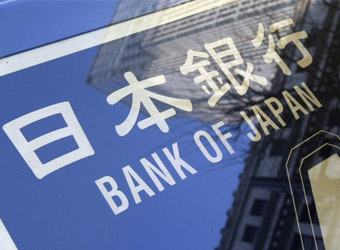Bank of Japan board member Makoto Sakurai said the central bank will continue to buy massive amounts of government bonds even under a new policy framework targeting interest rates, shrugging off the view that its bond-buying programme was nearing a limit.
But the former academic urged the government and companies to do more to help the BOJ beat subdued inflation and growth in Japan by raising wages and promoting innovation.
“There is no magic wand” to pull Japan’s economy out of the doldrums, Sakurai said in a speech on Thursday to business leaders in the city of Otsu, western Japan, signaling that monetary easing alone can’t cure the country’s economic woes.
The remarks by Sakurai, regarded as among the most vocal advocates of aggressive easing in the nine-member board, underscored a dominant market view the central bank is done expanding stimulus for the time being.
The BOJ switched its policy target to interest rates from the pace of money printing in September, after years of massive asset purchases failed to jolt the economy out of stagnation and accelerate inflation to its 2 percent target.
Some analysts interpreted the move as a sign that the BOJ would attempt to taper its huge asset purchases in the long run, amid a growing market view the central bank will run out of bonds to buy in coming years after having already gobbled up a third of the entire market.
Sakurai dismissed such views, saying that the new framework was intended to make the BOJ’s ultra-loose monetary policy sustainable.
“We will continue to buy huge amounts of government bonds to control interest rates,” he said.
“Our yield curve control is operating smoothly,” he told reporters later in the day, adding that bond yields were moving roughly in line with the central bank’s intentions.
Sakurai also shrugged off concerns voiced by some investors that the central bank’s huge purchases were distorting Japan’s real-estate investment trust (REIT) market.
“I don’t see any big distortion to the market,” he said.
Sakurai has voted with the majority of the board since joining the BOJ in April, including its decision to change its policy target to interest rates.
On the yen’s recent declines, Sakurai said a weak yen would help accelerate inflation in Japan but stressed that it was desirable for currency rates to move in a stable manner.
The dollar hit a 9-1/2-month high against the yen on Thursday as oil prices surged after OPEC agreed to output cuts, lifting inflation expectations and U.S. bond yields.
Source: Reuters


